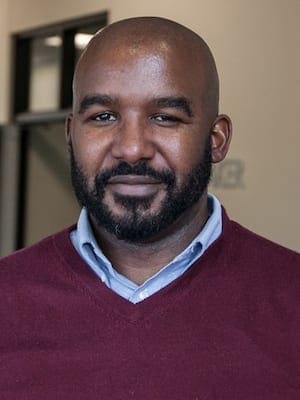With the headline-grabbing political, racial and social events that have occurred in the U.S. over the past few months, people have had a lot to talk about.
From videos of brutality committed by both police and citizens, to the expanded attention toward domestic violence prompted by the misconduct of NFL players, to the rise of new terrorist groups like ISIS, to the spread of Ebola from another country to the United States, all forms of media are buzzing with commentary on these and other issues from both informed and uninformed contributors.
In today’s vastness of media options, anyone with an opinion on any subject can find a way for their voice to be heard.
From Facebook to Twitter to Snapchat to traditional radio call-in shows, there’s a medium for every person to have their say.
The opinions being expressed are as diverse as the media platforms available to make opinions heard.
One would think that this diversity in opinion would be seen as a good thing. Unfortunately, this is not how many of us feel.
We all regularly hear and read arguments between people standing on differing sides of an issue that would make the feud between the Hatfields and McCoys look like a kindergarten class tug-of-war.
Unfortunately, these arguments seem to be less about the issues being discussed and more about the fact that someone does not see the world the same way as I do. The fallout from these types of arguments can be dramatic.
We have all read posts from friends promising to never use Facebook again because people have been insensitive toward them.
We have all read comments posted by participants on a website classifying any group other than theirs as less than human.
We have all heard about family members who no longer associate with each other because they have offended each other to the point of no return.
As I hear and read these types of interactions on a daily basis, I am left with the question, “Who would Jesus ‘un-friend’?”
With so many lines being drawn in the sand, is there a way to wade through the unfriendly and unproductive chatter that is voiced so frequently?
I have three ideas that should help us all navigate the process of expressing our own opinions without making someone who disagrees with us into unnecessary villains.
First, we have to remember that disagreement is not a sin or an unforgivable offense.
We are not all required to think alike or to feel the same way about anything. Varying opinions are valuable.
Independent thought is admirable and has led to some of the more important discoveries and advances in the world.
History is replete with examples of people who held well-reasoned dissenting views being justified for their independent thoughts.
We can respect another person’s right to hold an opinion just as we want them to respect our right to do the same.
Second, we have to realize that wisdom can come in many ways, even if it does not come in ways that we anticipate.
Even though I am a Christian, I personally appreciate and cherish the opinions of my friends and family who do not hold to any religious faith.
I intentionally ask for the opinions of people who do not hold to the same positions that I do. I do this because I have learned that wisdom is not only found in my belief system.
Wisdom can be found in the experiences of people who worship God or in the experiences of people who do not recognize any god.
I have learned that those who may have differing values from me still care about the same things that are important to me and my family. We have a common foundation as humans.
Third, we must learn to distinguish between the person sharing their opinion and the issue being discussed.
The totality of a person, or a group of people, is not found only in what they think about a particular subject or the stance they take on a politically charged issue.
As much as we try, the totality of a person or group cannot be adequately summed up by their opinion on one subject.
My hope is that we would all do our due diligence and think through our own opinions before we critique those held by someone else.
If we are able to learn how to communicate more effectively with each other, we may be able to make substantial progress toward living together in peace instead of living separately in fear of each other.
 Terrell Carter is minister of administration at Third Baptist Church in St. Louis and director of the Foundations in Ministry program for Central Baptist Theological Seminary in St. Louis.
Terrell Carter is minister of administration at Third Baptist Church in St. Louis and director of the Foundations in Ministry program for Central Baptist Theological Seminary in St. Louis.
A pastor, author and educator living in St. Louis, Missouri, he is the author of several books, including The Gospel According to Broadway and Taking Apart Bootstrap Theology: Gospel of Generosity and Justice.

